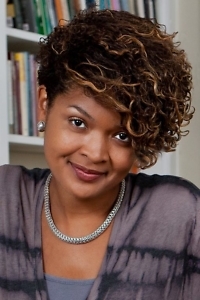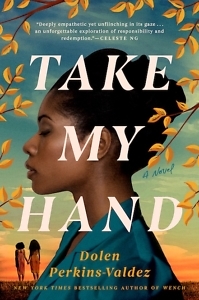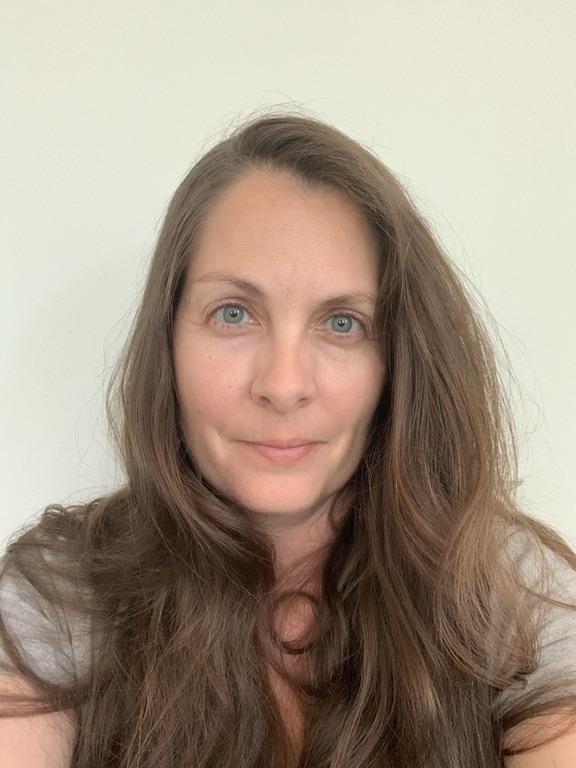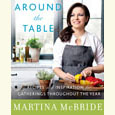The Right to Decide
Take My Hand considers a terrible injustice fueled by prejudice and good intentions
Most people trust the legal system to stand for truth and justice, even knowing it is flawed and that it will, at times, fail. But what do you call it when the victims prevail, but justice remains out of reach? What happens when you complicate the narrative, when the concepts of guilt and innocence are blurred and dilated, expanding culpability to include those with good intentions and those who stood silent in witness to a crime?

Memphis native Dolen Perkins-Valdez has spent some time with these questions, and the result is her third novel, Take My Hand. This diamond-bright historical novel opens in 2016, but the heart of the story takes place through the narrator recounting her experience as a nurse in Montgomery, Alabama, in 1973. Take My Hand gives voice to Dr. Civil Townsend, a Black physician at the end of her career who can’t be at peace until she shares the story of Erica and India, sisters who were unlikely patients of the family planning clinic where Civil worked as a nurse.
On her first visit to the girls’ home, Civil is tasked with giving them birth control injections, a common practice, especially for younger patients who might have trouble with a daily pill. She believes in the clinic’s mission and is determined to facilitate choice for women in her community. But at 11 and 13, Erica and India are terribly young, a fact that troubles Civil even before she sees the depth of their poverty and long before the white clinic director facilitates surgical sterilization for both girls. Outraged, Civil fights on their behalf, working with a talented young lawyer who ultimately takes their case all the way to federal court.
Inspired by true events in 1970s Alabama, the book shines a light on a painful part of U.S. history. Substantial research into the original case, Relf v. Weinberger, provides a solid foundation for the narrative, but when Perkins-Valdez couldn’t find a firsthand account from any of the nurses who worked at the real clinic during that time, she created one in Civil Townsend. These nurses are the witnesses who never testified, and Take My Hand considers whether their silence makes them complicit.
 Raised in upper-middle-class Centennial Hill, Civil is the daughter of a doctor and an artist. Her experience as a Black woman in the South could not be called easy, but she acknowledges the vast sea between her experience and that of Erica and India. Immediately sympathetic to their plight, she wants to help, and with her relative wealth and connections, she can. But Perkins-Valdez skillfully unsettles the easy definitions of “help,” asking readers to question the notion of good intentions.
Raised in upper-middle-class Centennial Hill, Civil is the daughter of a doctor and an artist. Her experience as a Black woman in the South could not be called easy, but she acknowledges the vast sea between her experience and that of Erica and India. Immediately sympathetic to their plight, she wants to help, and with her relative wealth and connections, she can. But Perkins-Valdez skillfully unsettles the easy definitions of “help,” asking readers to question the notion of good intentions.
Townsend’s intentions are good, but they could still do harm; the same is true of the clinic director, who believes she is doing the right thing even as she steals the sisters’ future choices and their sense of control over their own bodies. The novel takes on issues of racial inequity and harmful bias, addressing class and gender and even abortion, but it always comes back to what has been stolen from these girls and so many others like them.
As she sits in the courtroom, listening to the alarming statistics regarding the practice of coerced or forced sterilization, Civil thinks, “How dare they? Our bodies belonged to us. Poor, disabled, it didn’t matter. These were our bodies, and we had the right to decide what to do with them. It was as if they were just taking our bodies from us, as if we didn’t even belong to ourselves.” It was a theft, a crime that has been replicated in countless ways over the years, and this novel serves as testimony.
Returning to Montgomery years later, Civil knows justice remains a slippery thing. She visits Lou Feldman, the lawyer on the case, and he agrees, noting, “Back then I thought justice was a moral right.”
“And now?” Civil asks.
“I still believe in right and wrong or else I wouldn’t still be practicing law after all these years,” he replies. “It’s just that now I know justice is as complicated as everything else in life.”
Take My Hand walks bravely through those complications, walking the thin line between despair and hope. In the end, though, the voice we hear is that of Civil Townsend — a Black woman who has made unconventional choices throughout her life, insisting on the viability and necessity of those choices. Where India and Erica had their choices stripped from them, Civil leans in and insists, her life a representation of a true and complicated hope.
[Read Chapter 16’s interviews with Dolen Perkins-Valdez about her 2015 novel, Balm, and her 2010 debut, Wench.]

Sara Beth West is a writer and reviewer, usually found at sarabethwest.com. She lives in Chattanooga with her family, dogs, and a cat who always, always, always thinks it is time for dinner.


